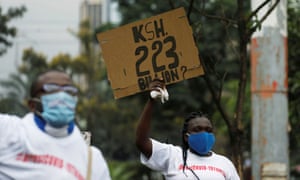
[ad_1]
Israel’s prime minister has defended his decision to tighten the country’s lockdown measures, including restricting people’s ability to demonstrate and pray at synagogues.
The country of 9 million entered a second lockdown a week ago as infection rates surged to record levels, and the government recommended extra rules that would reportedly limit protests to groups of 20 people as of Friday.
Benjamin Netanyahu, who has faced months of demonstrations calling for him to resign, rejected that the new rules were imposed to block the weekly rallies against him, calling the accusations “absurd”.
“The demonstrations”, he said, “show contempt for the rest of Israelis who are being disciplined”.
He added:
The right to demonstrate, like the right to pray, the right to earn a living, the right to transportation, are very important rights, sacred rights in a democracy. But they are not unlimited rights. The right to life is also a right.
Yair Lapid, the leader of the opposition, said in a statement that the second lockdown was “avoidable” but recommended the public follow the new rules.
“The reason is the failed, political, negligent and hysterical management of the crisis by this government and by the prime minister,” he said.
“We will adhere to the rules on protests even if they’re being handed down for improper reasons … we will protest in capsules of 20 people,” he added. “We will pray responsibly and we will protest responsibly. We will adhere to all the rules.”
Israel’s parliament is currently assessing the government’s recommendations.
Updated
A significant proportion of patients who develop life-threatening forms of Covid-19 have genetic or immunological defects that impair their ability to fight the virus, research has found.
In papers published in the journal Science, the Covid Human Genetic Effort international consortium describes two glitches in severely ill Covid-19 patients that prevent them from making a frontline immune molecule called type 1 interferon.
The patients would have carried these glitches for years before the pandemic, or in the case of the genetic errors, all their lives. The discovery may help to explain a mystery surrounding the coronavirus: why it leaves some sufferers sick or dying in intensive care, while others remain barely affected or asymptomatic.
[ad_2]
Source link

